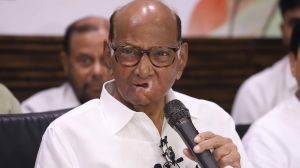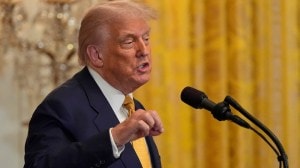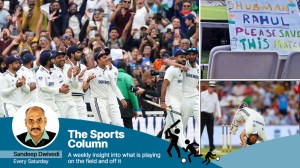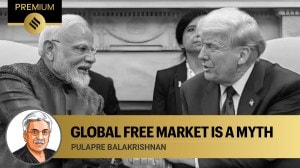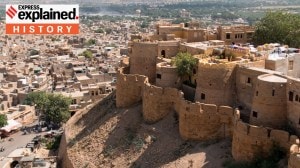Click here to follow Screen Digital on YouTube and stay updated with the latest from the world of cinema.
Shyam Benegal on recreating the persona of the founding father of Bangladesh for his latest, Mujib: The Making of a Nation
Shyam Benegal has seasoned himself with humanising the persona of our national icons through The Making of the Mahatma and Bose: The Forgotten Hero. In his next, he tries to explore the complex facets of Sheikh Rahman’s life.
 Mujib: The Making of a Nation director Shyam Benegal seeps into research, studies and analyses so deeply that his reinterpretation becomes almost instinctive.
Mujib: The Making of a Nation director Shyam Benegal seeps into research, studies and analyses so deeply that his reinterpretation becomes almost instinctive. Filmmaker Shyam Benegal continues to be thorough and thoughtful about his work, but doesn’t mind a few crackling gaps over a telephone call to discuss it animatedly. Especially when he talks about rediscovering and retelling history, rescuing forgotten heroes or unpeeling the unknown layers of those we know all too well. He seeps into research, studies and analyses so deeply that his reinterpretation becomes almost instinctive. Like the last-minute title change he did to his biopic on Sheikh Mujibur Rahman, an Indo-Bangladesh joint production on one of the icons of sub-continental history.
When the film went on floors in January 2021, the working title was Bongobandhu, The Making of a Nation. “But then I thought changing Bongobondhu to Mujib would not only be striking, but also have more meaning. The name Mujib means a person with answers. And this towering personality was a deliverer of his people, who looked up to him. Not just that, they believed in him,” Benegal notes.
The veteran filmmaker, who has seasoned himself with humanising the persona of our national icons through The Making of the Mahatma and Bose: The Forgotten Hero, had his hands full, trying to explore the complex facets of Sheikh Rahman’s life. In the end, he chose to conceive him from a uniquely emotional perspective. Says Benegal, “Reconstructing his life was a tough ask. But what appealed to me was his emotional chord. His greatest quote, ‘My greatest strength is the love for my people, my greatest weakness is that I love them too much,’ was very telling. So I started studying more about his human qualities. That’s when I found out that among all sub-continental figures in history, Rahman was a devout family man. He had a happy family life and for all his public persona, never cut corners with his family. He was as uncompromising about his political beliefs and movements as he was about family values and time. That’s the lens from which my film sees him. The narrator of the film, therefore, is his wife, the closest person to understand him. Not only that, she grew up in Sheikh Rahman’s household and ultimately got married to him. So it was easier to chart the character’s growth from this prism. The familial man shaped the social and political vision of the man.”
 A poster of Mujib: The Making of a Nation.
A poster of Mujib: The Making of a Nation.
Perhaps Sheikh Rahman’s interview to BBC’s David Frost in 1972 would shed some light on why he chose to be the protector of his family. On the attacks by the Pakistan Army, he had said, “They destroyed my village home where my old parents were living. My father was 90, my mother was 80. They sent the army, drove my father and mother from the house and burned the house in front of them. So they had no shelter.” He had also recounted how troops had started machine-gunning his house when he had holed himself with his wife and children in their bedroom. He then came out and braced for the worst till an officer thought it was better to arrest him.
Of course, that’s the pivot. But Benegal has chosen significant aspects of his life and featured some of his famous speeches, too, to weave a narrative that traverses the path of a nation in making – as part of undivided India, as part of Pakistan and a free Bangladesh after seceding from Pakistan. “He was an icon of Bengali nationalism and the language of andolan was definitely a galvaniser of his movement. But his nationalism was not parochial. It was about protecting a singular but definitive culture that was typical of the Bay of Bengal delta,” adds Benegal.
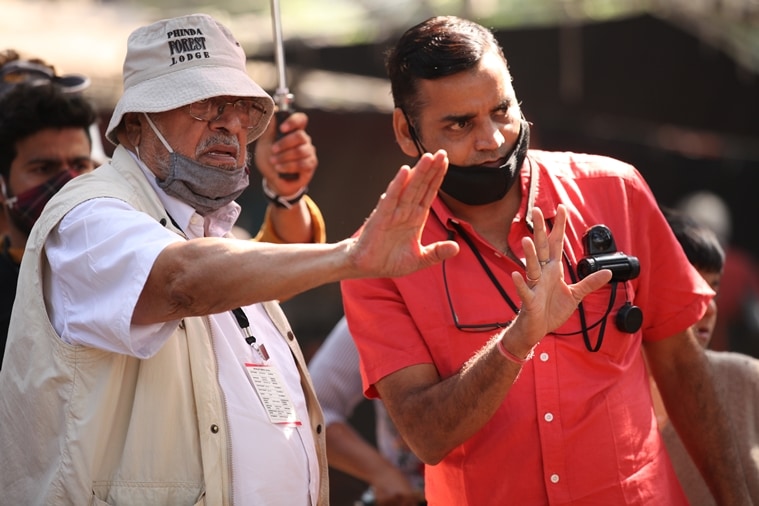 To make Bongobandhu more realistic, Shyam Benegal insisted that the major cast and crew and the writer should be from Bangladesh.
To make Bongobandhu more realistic, Shyam Benegal insisted that the major cast and crew and the writer should be from Bangladesh.
Obviously, the talk of Bengali nationalism draws comparisons with Subhas Chandra Bose, considering that in 2003, author David Ludden, too, described Sheikh Rahman as a “forgotten hero.” Did Benegal feel the need for a comparative treatment? “Not at all. Their historical contexts were different. Of course, Sheikh Rahman saw Bose as an inspirational figure but Bose was an anti-colonialist. Rahman’s nationalism was more cultural, ethno-linguistic and about the right of people to live with their heritage within a certain territorial span. No two historical figures can ever be the same because each is a product of his time and has his own vision and singularity of purpose,” says the filmmaker.
One would assume that understanding Sheikh Rahman would have been a formidable challenge for Benegal, considering he is not too familiar with Bengali. But he took it in his stride, particularly because of the support from the Bangladesh Film Development Corporation (BFDC). “I was grateful that the National Film Development Corporation (NFDC) chose me as the director. But I had a good support system of researchers, writers, translators and interpreters. So the script was taut all along. I met his daughter and Bangladesh Prime Minister Sheikh Hasina several times to understand the nuances of Bongobondhu’s personality and she gave us many unknown facts. In fact, she wanted me to make the film either in English, Urdu or Hindustani. But the story of a Bengali nationalist, who fought Pakistan because it was trying to force Urdu as the national language when the majority of people in East Pakistan were Bengali, deserved no other language. Not only that, the Bengali used in the film is not of the kind we speak in Kolkata and West Bengal. It has the texture and flavour of the Bengali spoken across the border,” says Benegal.
To make Bongobandhu more realistic, Benegal insisted that the major cast and crew and the writer should be from Bangladesh. And although he did many field trips with his crew, he was quite surprised by the ease with which the project took off. “This is the first time that actors are from Bangladesh and the technical team is from India. But they were outstanding professionals, coming to the sets on time and with their lines ready. It was not just a creative experience, it was a happy experience with very good human beings,” he says.
A couple of years ago, Benegal had said how so much of our history could be recreated. He had then said he would like to work on the landmarks of ancient civilisation, the Mauryan Empire, the freedom struggle or the great Mughals. “Even the British Raj has such a dimension; our reformers like Raja Rammohan Roy evolved from these times,” he had said back then. Enough to keep the master storyteller busy.
Mujib: The Making of a Nation has just launched its poster and is scheduled for an autumn release.


Photos





- 01
- 02
- 03
- 04
- 05













